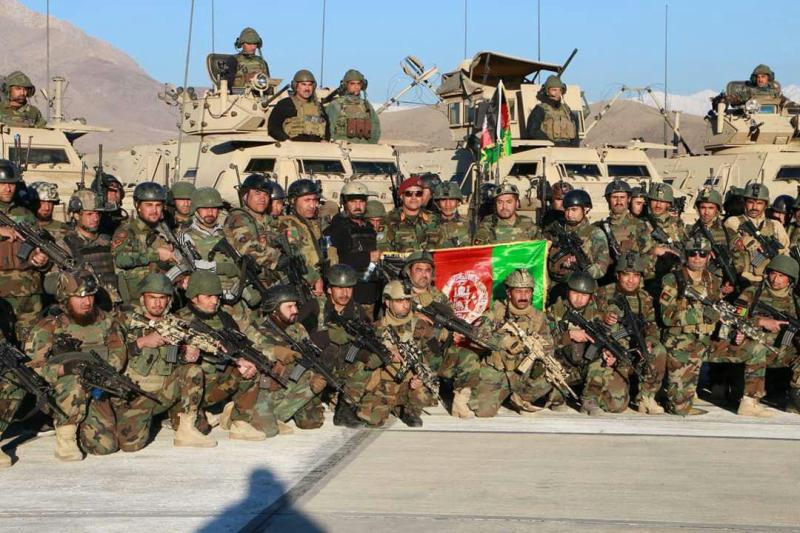Mohsen Pak-Ayein in an interview with the site of Strategic Council of Foreign Relations having pointed out the negative measures taken by Ashraf Ghani which affected relations between the two countries, continued:” During his tenure of office, we witnessed the isolation of ethnicities and like-minded groups with Iran such as Tajiks, Shi’ites, and Uzbeks. Ashraf Ghani Administration even made efforts in cultural field to marginalize the Persian language which is the original language of the people of Afghanistan. The relations between Iran and Afghanistan were, therefore, not good ones during his office. Mr. Ashraf Ghani was, indeed, carrying out the instructions issued by the US.
Having stressed that Ghani Administration severely distanced from independent policy of Afghanistan, Pak-Ayein continued:” by implementing the US policy, Ashraf Ghani freed the Taliban prisoners, thus, helped Taliban to be removed from the list of terrorist groups and gaining an international position”.
Failure of Ashraf Ghani’s Administration in preserving warm relations with Iran, Russia and China
The expert of Afghanistan said:” Mr. Ashraf Ghani Administration was not only unable to establish good relations with Iran, but his relations with Russia, China and other countries opposing the US, were lukewarm. However, as soon as he felt danger about the forthcoming developments in Afghanistan, he tried to ask Iranian authorities to enter into negotiations with Taliban and convince them to negotiate with Ashraf Ghani Administration.
Pak-Ayein considered strong dependence of Ashraf Ghani as well as his absolute trust in the US as an impediment against having good relations with Iran, he added:” Various ethnicities like Tajiks, Uzbeks, Hazaras, and some of their personalities whom are called as “former Mujahedin” and fought at different junctures for the independence of Afghanistan were all dissatisfied with Mr. Ashraf Ghani Administration because of his very same attitude, and had no willing to support him and his Administration against Taliban. That’s the reason why they did not enter into clash with Taliban and they did not request for Iran’s assistance either.
He continued:” Taliban entered into negotiations with these groups peacefully in different regions and promised them to play a role in the future of Afghanistan. Thus, they entered into the cities with overwhelming Tajik, Uzbek and Hazaras dwellers. The people of these regions even welcomed them.
Reasons of Army Defeat against Taliban
Having pointed out to the defeat of Afghanistan army against Taliban, and seizing some regions without the minimum resistance from the army of the country, Pak-Ayein said:” In addition to the US shortcoming in effective training of Afghan forces, as Afghanistan army has so far been logistically supported by the US Air Force operations it was depending on the US. As the Army could not be benefitted from the US Air Force to fight against Taliban, it was naturally unable to go ahead on the ground as well.
The analyst of Afghanistan continued:” It was a few months since the salary of the military forces had not been paid because of the economic problems and inefficiency of Mr. Ashraf Ghani. To any region where the Taliban was planning to enter, they sent messages to the Army of the region and asked them about their motivations (to stand against the Taliban), then the Taliban warned them that they would defeat if and when they enter into war with the Taliban forces. Many of the Army commanders were not practically participating in the war, and were thus, under the security and pardon of the Taliban.
Having stated that the Taliban entered into most cities and towns without any clash and only by convincing the Army not to fight, he stressed:” Even if the Army had entered into war, it was doomed to defeat because of the lack of aerial support from the Americans. The compromise of the Army led to few casualties. Taliban, managed to surmount the Army through such approach.
Former Director of Afghanistan Headquarter at the Ministry of Foreign Affairs added:” Many of the Army commanders were indeed, surrendered to the Taliban because they felt if they enter into war with the Taliban, as they could not be benefitted from aerial support of the Americans, they were doomed to defeat. Indeed, the Army did not join the Taliban but they surrendered without war and bloodshed.
Pak-Ayein said:” the people of Afghanistan, like in the past, were concerned about manslaughters and lootings at the beginning. But the Taliban reassured them not to take any action against people and towns, and even to provide their security. Their reassurance caused confidence among the rank and file people gradually. In many towns, even non-Pashtuns welcomed the Taliban.
He spelled out on the US role in Army defeat, Administration failure and people disappointment:” NATO and the US are accountable as main guilty for Afghanistan destructions. Under the pretext of Al-Qaeda attacks on twin towers, and with the authorization of United Nations Security Council, they launched military expedition. They claimed to fight against terrorism, to establish a democratic government, to prevent production of drugs and drug trafficking of narcotics, to train army and forming a civil society based on democracy, but none of the promises was delivered. The performance of the American soldiers provoked hatred of Afghans against them. After 20 years of failure to fight against the Taliban, the US army had to withdraw from the country hastily.
Pak-Ayein added:” in the light of Afghans hatred for the US, when the Taliban announced the exit of the US forces from Afghanistan as the main condition to establish peace in the country, majority of the people welcomed them. The US, however, tried to show that after the withdrawal of her forces, insecurity will be overwhelmed in Afghanistan. With their peaceful approach to the people and the army, the Taliban has sent a message that the US was the main factor of war and bloodshed.










0 Comments